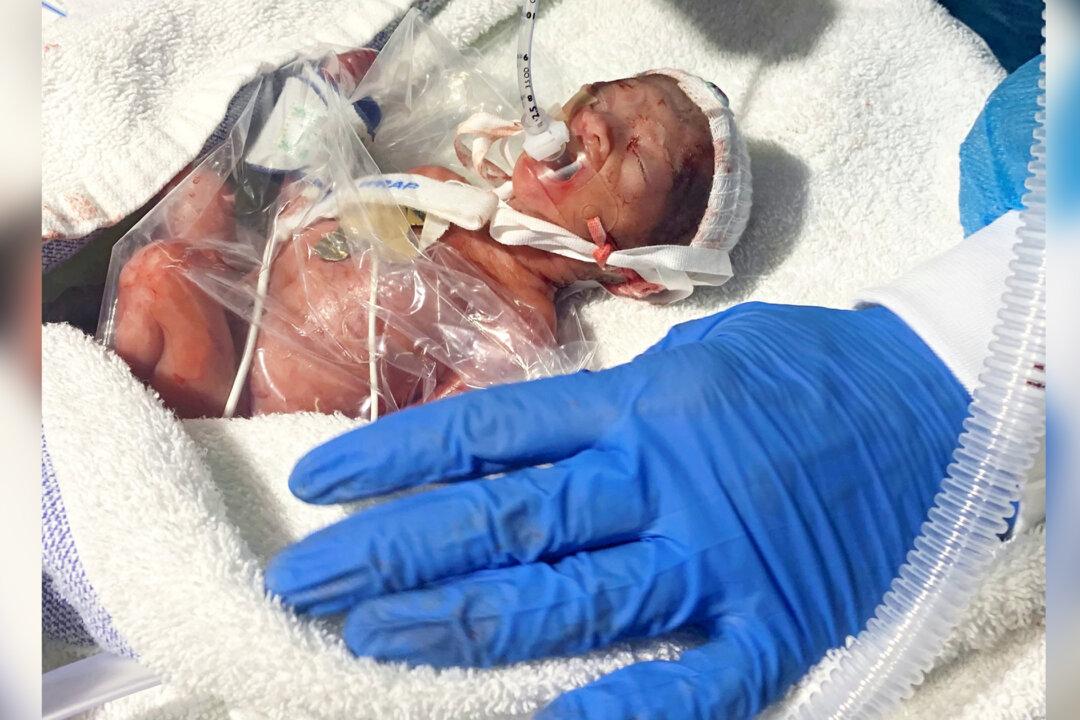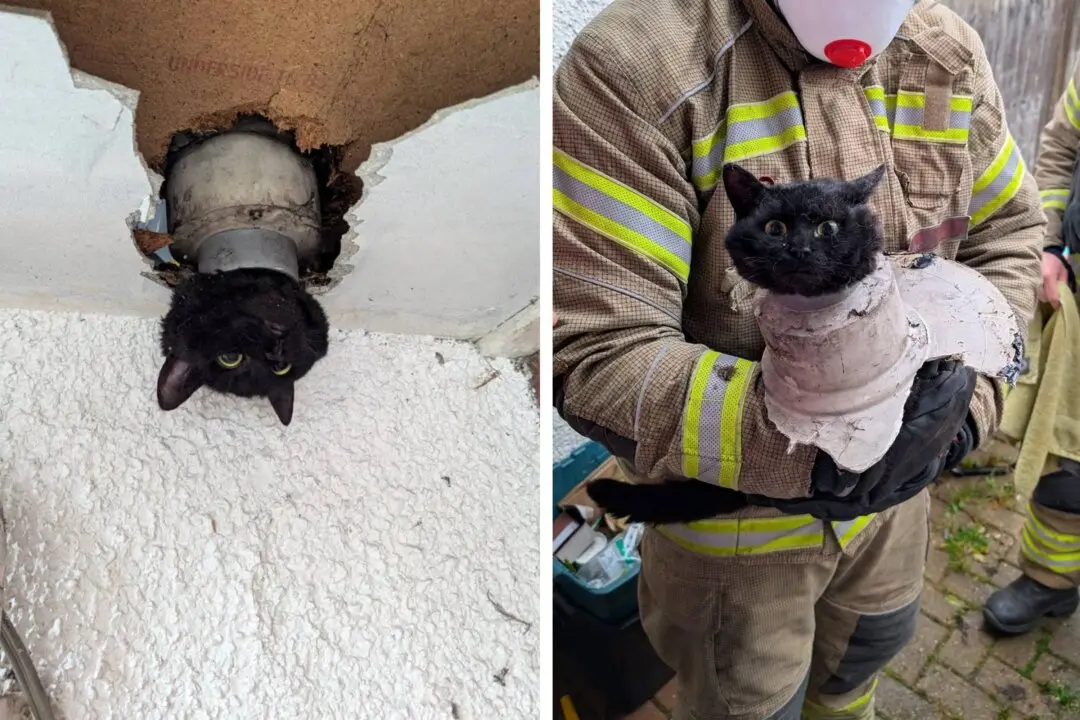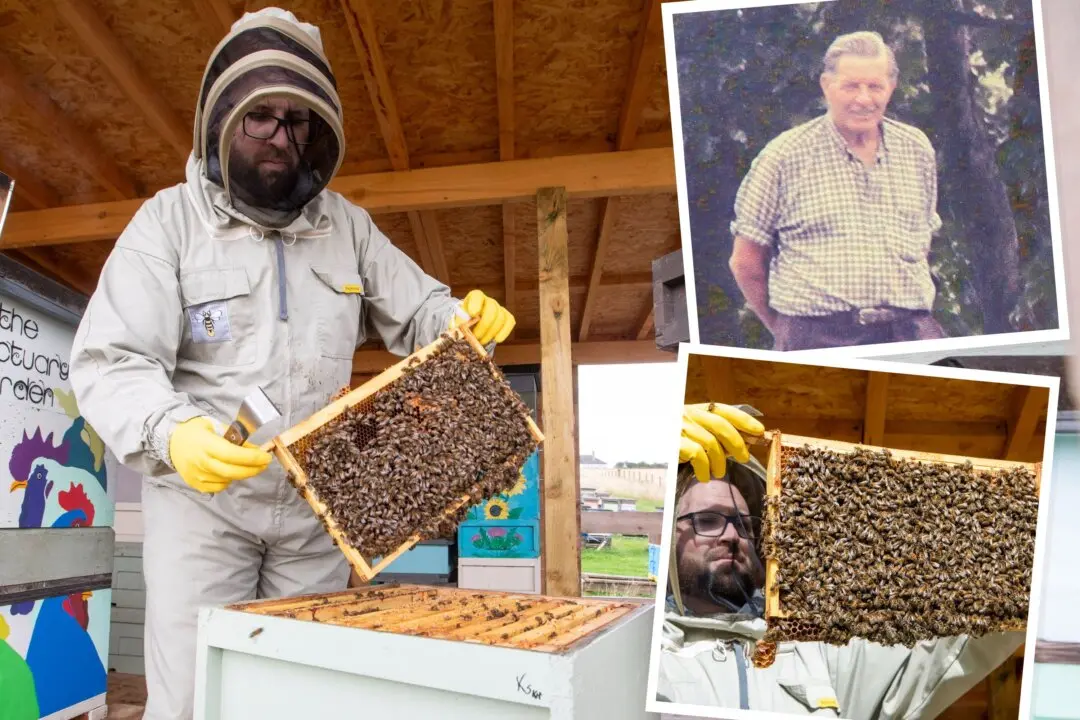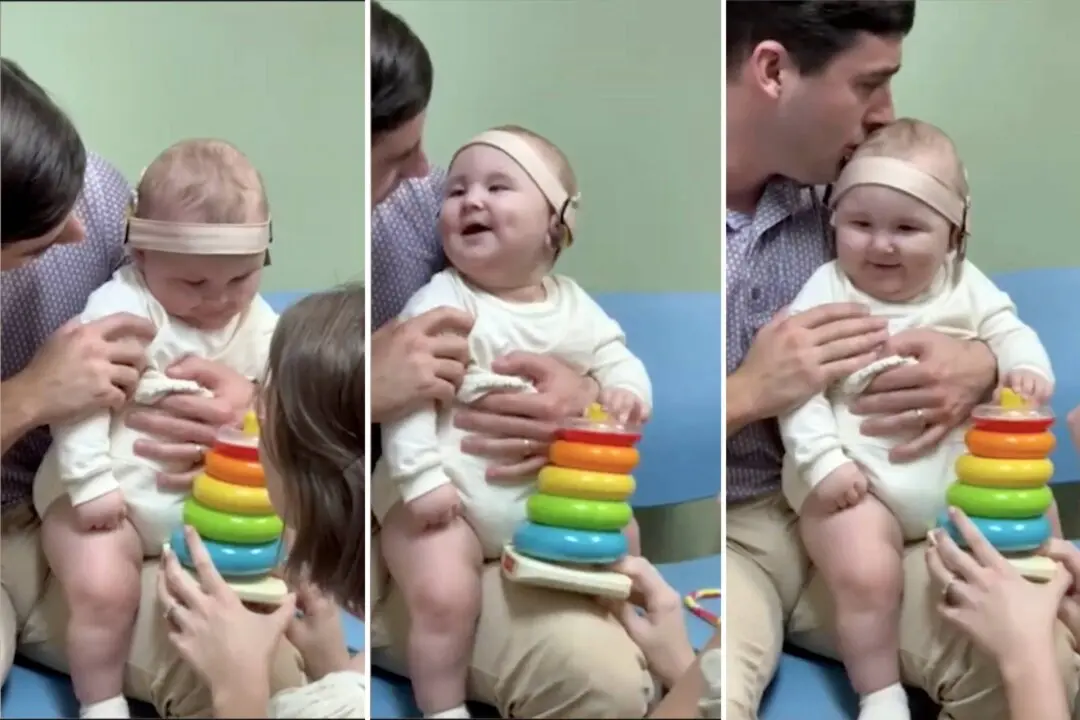One of Britain’s most premature babies has defied the survival odds and doctor’s expectations after being born at just 22 weeks and one day, weighing less than 1 pound.
Charvi Matthews weighed just 14 ounces (approx. 0.39 kg)—less than a loaf of bread—when she was born more than three months early.





